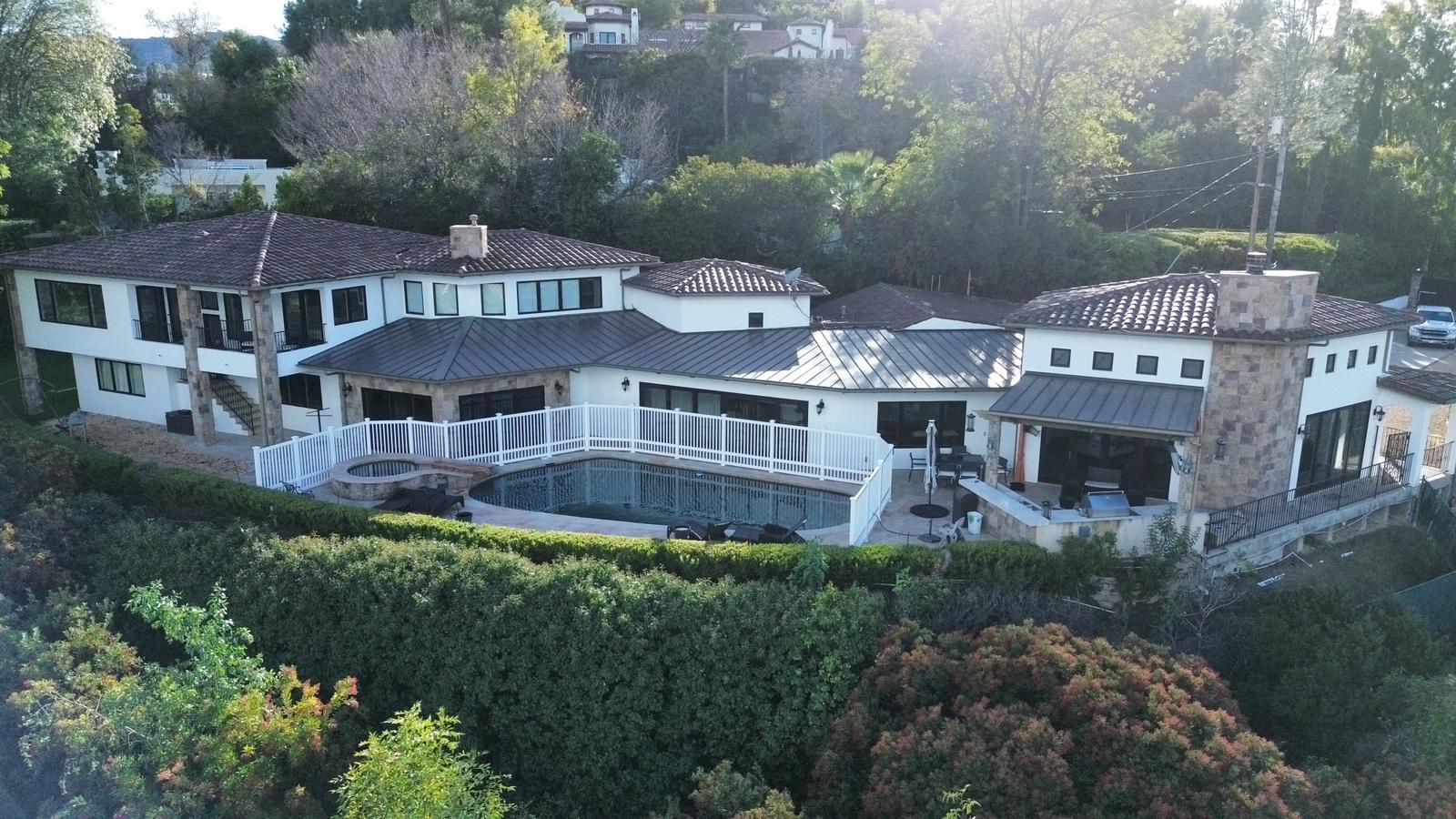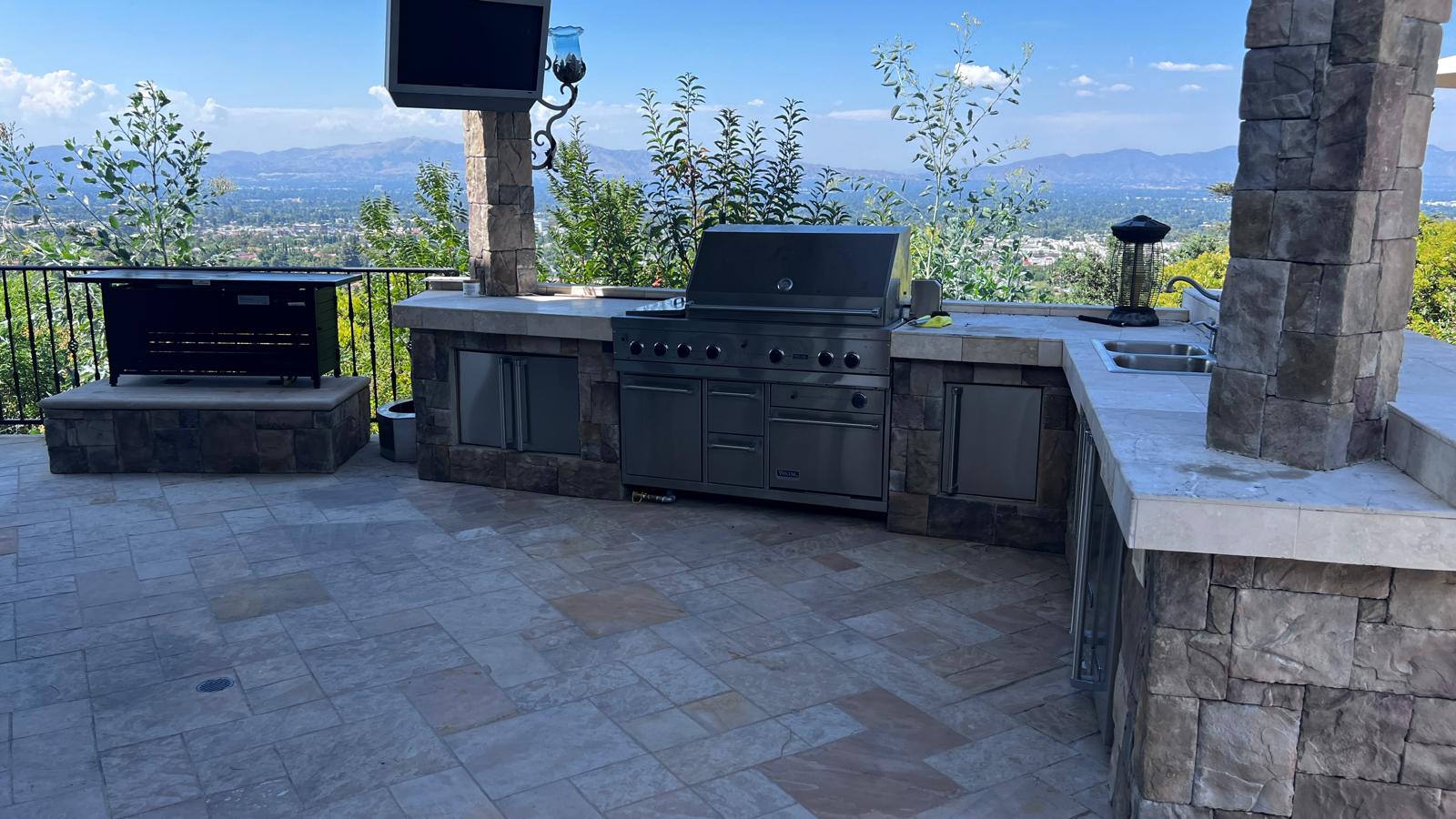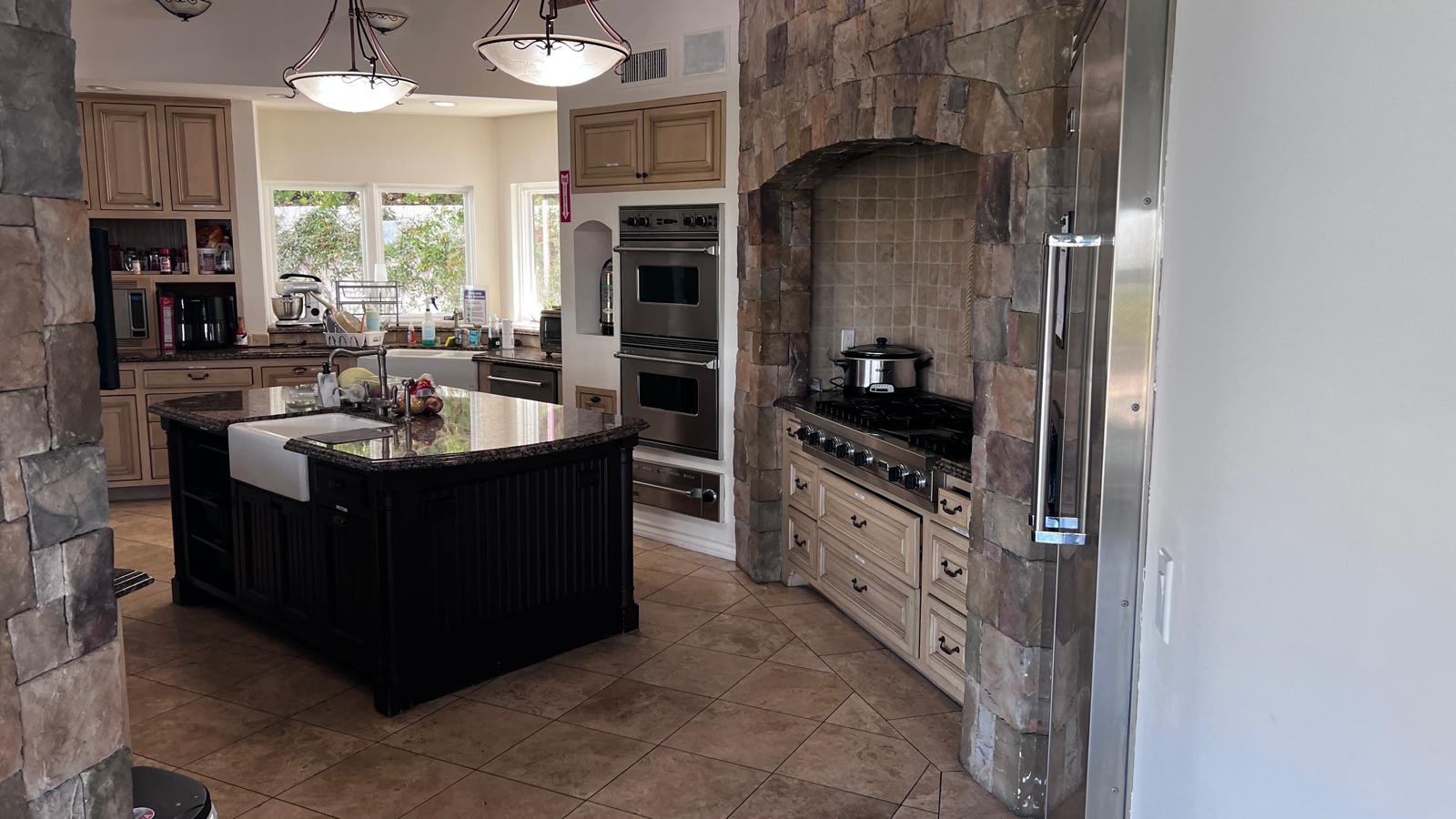Understanding the Premium Approach to Recovery: Why Location and Environment Matter
The journey toward recovery from addiction and co-occurring mental health disorders represents one of life’s most profound transformations. For individuals seeking the highest caliber of care, luxury residential treatment California offers an unparalleled combination of clinical excellence, personalized attention, and therapeutic environments that foster healing on every level.
California’s unique position as a leader in addiction medicine stems from decades of innovation in treatment methodologies, combined with the state’s natural beauty and year-round climate that supports outdoor therapeutic activities. The Golden State houses some of the nation’s most prestigious treatment facilities, where evidence-based practices merge seamlessly with holistic approaches and luxury amenities.
The Evolution of High-End Addiction Treatment
From Institution to Sanctuary
Traditional rehabilitation models often resembled clinical institutions more than healing sanctuaries. However, the landscape has dramatically shifted toward recognizing that environment plays a crucial role in recovery outcomes. Modern luxury rehab California facilities understand that healing occurs more effectively when individuals feel safe, comfortable, and dignified throughout their treatment journey.
The transformation began in the early 2000s when treatment professionals recognized that many high-functioning individuals were avoiding treatment due to concerns about privacy, comfort, and the ability to maintain certain lifestyle standards during recovery. This gap led to the development of luxury residential treatment centers that could address these concerns while delivering exceptional clinical outcomes.
The Science Behind Luxury Treatment Environments
Research consistently demonstrates that stress reduction significantly impacts treatment success rates. When individuals enter treatment feeling anxious about their surroundings, privacy, or basic comfort needs, their nervous systems remain in a heightened state of arousal that interferes with the neuroplasticity required for recovery.
Luxury drug and alcohol rehab California facilities create environments that activate the parasympathetic nervous system—the body’s “rest and digest” response—which is essential for healing. High-thread-count linens, gourmet nutrition, spa-like amenities, and beautiful natural settings aren’t merely indulgences; they’re therapeutic tools that support the brain’s capacity for change and growth.

Comprehensive Treatment Modalities in California’s Premier Facilities
Evidence-Based Clinical Foundations
The cornerstone of any reputable luxury residential treatment center rests upon scientifically validated therapeutic approaches. Cognitive Behavioral Therapy (CBT) forms the foundation of most treatment plans, helping individuals identify and modify the thought patterns and behaviors that contribute to addictive cycles.
Dialectical Behavior Therapy (DBT) has proven particularly effective for individuals with co-occurring mental health disorders, teaching distress tolerance, emotion regulation, and interpersonal effectiveness skills. Eye Movement Desensitization and Reprocessing (EMEDR) addresses trauma-related triggers that often underlie addictive behaviors.
High-end residential treatment centers California integrate these evidence-based modalities with cutting-edge approaches such as neurofeedback therapy, which helps individuals learn to regulate brain wave patterns associated with cravings, anxiety, and emotional dysregulation.
The Executive Approach: Tailored Treatment for High Achievers
Executive rehab California programs recognize that successful professionals, entrepreneurs, and executives face unique challenges in recovery. These individuals often struggle with perfectionism, work addiction, and high levels of stress that contributed to their substance use patterns.
Specialized executive tracks include business coaching, stress management techniques specifically designed for high-pressure careers, and flexible communication policies that allow individuals to maintain essential business relationships while focusing on recovery. Some facilities offer private offices where clients can conduct necessary business during designated hours, ensuring that seeking treatment doesn’t jeopardize professional responsibilities.
The California Advantage: Geography as Medicine
Climate and Natural Healing
California’s Mediterranean climate provides year-round opportunities for outdoor therapeutic activities that would be impossible in many other locations. Hiking therapy sessions in Malibu’s mountains, beach meditation practices, and outdoor fitness programs become integral components of treatment rather than occasional activities.
The state’s diverse geography offers everything from coastal serenity to desert tranquility to mountain majesty, allowing treatment centers to select locations that optimize therapeutic outcomes. Many Malibu rehab centers capitalize on the ocean’s natural therapeutic properties, incorporating surf therapy and beachside meditation into their programming.
Access to Innovation and Expertise
California’s position as a hub for medical innovation means that luxury residential treatment facilities have access to the latest therapeutic technologies and methodologies often before they become available elsewhere. The state’s concentration of research universities, medical schools, and technology companies creates an ecosystem where traditional addiction medicine intersects with cutting-edge neuroscience, digital therapeutics, and precision medicine approaches.
Holistic Integration: Mind, Body, and Spirit
Nutritional Psychiatry and Gourmet Wellness
The connection between nutrition and mental health has gained significant scientific validation, leading holistic rehab California facilities to employ culinary teams that create meals designed to support brain health and emotional stability. Omega-3 rich foods, complex carbohydrates that stabilize blood sugar, and nutrient-dense organic ingredients become part of the therapeutic protocol.
Many facilities employ nutritionists who specialize in addiction recovery, understanding how different substances deplete specific nutrients and how targeted nutrition can accelerate healing. Cooking classes and nutrition education help individuals develop healthy relationships with food that support long-term recovery.
Movement as Medicine
Exercise science has revealed the profound impact of physical activity on neuroplasticity, mood regulation, and stress management. Luxury treatment centers incorporate personal trainers, yoga instructors, and movement therapists who understand the specific needs of individuals in early recovery.
Activities range from gentle restorative yoga and tai chi to more vigorous hiking, cycling, and strength training programs. The key lies in helping each individual discover forms of movement that bring joy and stress relief, creating sustainable habits that support long-term recovery.
Spiritual Exploration Without Dogma
While traditional 12-step programs incorporate spiritual principles, modern luxury facilities recognize that spirituality manifests differently for each individual. Some may find connection through meditation and mindfulness practices, others through nature immersion, and still others through creative expression or community service.
The approach focuses on helping individuals develop a sense of purpose, connection, and meaning that extends beyond material success or substance use. This might involve guided meditation retreats, art therapy sessions, volunteer opportunities, or philosophical exploration groups.
Privacy, Confidentiality, and Discretion: The Premium Standard
HIPAA Compliance and Beyond
While all legitimate treatment facilities must comply with HIPAA regulations, private addiction treatment California centers often implement privacy protections that exceed legal requirements. This includes secure communication systems, private transportation arrangements, and staff trained in discretion protocols.
Many facilities offer private rooms with separate entrances, allowing high-profile individuals to maintain anonymity throughout their stay. Some provide decoy entrances and exits to prevent unauthorized photography or media attention.
Technology and Digital Privacy
In our interconnected world, digital privacy has become as important as physical privacy. Premium facilities often provide secure Wi-Fi networks, encrypted communication platforms, and policies regarding social media use that protect client confidentiality while allowing necessary communication with family and employers.
The Luxury Difference: Amenities That Support Healing
Accommodation Standards That Rival Five-Star Resorts
Luxury mental health treatment California facilities understand that comfortable, beautiful surroundings support the vulnerable work of early recovery. Private suites with high-end furnishings, spa-quality bathrooms, and personal outdoor spaces provide the comfort and dignity that many individuals require to fully engage in treatment.
Room features often include premium bedding, high-end toiletries, private balconies or patios, and personalized climate control. Some facilities offer concierge services to handle personal needs, allowing clients to focus entirely on their recovery work.
Culinary Excellence as Therapeutic Tool
Gourmet dining programs serve multiple therapeutic purposes beyond basic nutrition. Shared meals create opportunities for social connection and community building. Cooking classes teach life skills and provide creative outlets. Wine pairings with non-alcoholic beverages help individuals learn to appreciate sophisticated flavors without alcohol.
Many facilities employ executive chefs who specialize in creating meals that support recovery, incorporating brain-healthy ingredients and avoiding foods that might trigger cravings or mood instability.
Spa and Wellness Services
Massage therapy, acupuncture, and other bodywork modalities help individuals reconnect with their physical selves in healthy ways. Many people in active addiction become disconnected from their bodies, either through neglect or through using substances to numb physical sensations.
Professional spa services provide opportunities for healing touch, stress reduction, and self-care practices that individuals can continue after treatment. Some facilities offer specialized treatments like float tanks, infrared saunas, and cryotherapy that support detoxification and stress reduction.
Medical Excellence: The Clinical Foundation
Physician-Supervised Detoxification
Residential detox California programs in luxury facilities maintain the highest medical standards while providing comfort during the challenging detoxification process. Board-certified addiction medicine physicians oversee the process, utilizing medications when appropriate to minimize discomfort and ensure safety.
24-hour nursing care ensures that vital signs are monitored continuously, and any complications are addressed immediately. Comfort medications, hydration therapy, and nutritional support help individuals through the physical challenges of early sobriety.
Psychiatric Integration
Most individuals entering luxury residential treatment have co-occurring mental health disorders that require specialized attention. On-site psychiatrists provide comprehensive evaluations, medication management, and ongoing psychiatric care integrated with addiction treatment.
This dual-diagnosis approach recognizes that attempting to treat addiction without addressing underlying mental health conditions typically results in poor outcomes. Depression, anxiety, PTSD, and other conditions receive equal attention alongside addiction treatment.
Medical Monitoring and Health Optimization
Comprehensive medical evaluations identify physical health issues that may have been neglected during active addiction. Chronic conditions like diabetes, hypertension, and liver dysfunction receive appropriate medical attention while individuals focus on recovery.
Some facilities offer executive health screenings that rival those found at top medical centers, providing detailed assessments of cardiovascular health, hormone levels, nutritional status, and other factors that impact overall wellbeing.
Family Involvement and Support Systems
Family Therapy and Education
Addiction impacts entire family systems, and successful treatment often requires family involvement. Luxury facilities typically offer family therapy sessions, educational workshops, and communication skills training that help repair damaged relationships and build healthy support systems.
Some programs include family retreat weekends where relatives can participate in therapy sessions, educational workshops, and recreational activities in the treatment center’s setting. This helps families understand the recovery process and learn how to provide appropriate support.
Continuing Care Planning
The transition from residential treatment back to daily life represents a critical period where relapse risk is highest. Premium facilities invest significant resources in discharge planning and continuing care coordination.
This might include arrangements for ongoing therapy, psychiatric care, and support group participation. Some facilities maintain alumni programs that provide ongoing connection and support for graduates.
Measuring Success: Outcomes and Accountability
Evidence-Based Outcome Measurement
Reputable luxury residential treatment centers track specific metrics that demonstrate treatment effectiveness. These might include retention rates, completion rates, 30-day sobriety rates, 90-day sobriety rates, and longer-term follow-up data.
Quality facilities conduct follow-up surveys with graduates at regular intervals to track long-term outcomes and identify areas for program improvement. This data helps refine treatment approaches and demonstrate accountability to prospective clients.
Accreditation and Quality Standards
The Joint Commission, CARF (Commission on Accreditation of Rehabilitation Facilities), and other independent organizations provide accreditation for treatment centers that meet rigorous quality standards. These accreditations require regular audits and compliance with evidence-based treatment protocols.
Luxury facilities often pursue additional certifications and maintain memberships in professional organizations that hold them to high ethical and clinical standards.
The Investment in Recovery: Understanding Costs and Value
Comprehensive Fee Structures
Inpatient rehab California costs vary significantly based on length of stay, level of luxury, and specific services included. Typical luxury residential treatment ranges from $30,000 to $100,000 per month, with some ultra-high-end facilities charging more.
These fees typically include accommodation, all meals, medical care, psychiatric services, individual and group therapy, recreational activities, and most amenities. Additional costs might include specialized treatments, extended family therapy, or transportation services.
Insurance Coverage and Financial Planning
Many luxury facilities accept private insurance plans that provide comprehensive coverage for addiction treatment. Insurance coverage varies widely, but mental health parity laws require most plans to provide addiction treatment coverage comparable to other medical conditions.
Financial coordinators at quality facilities help individuals understand their insurance benefits, submit pre-authorization requests, and navigate the often-complex process of maximizing insurance coverage while minimizing out-of-pocket expenses.
Choosing Excellence: Selecting the Right Luxury Treatment Center
Evaluation Criteria for Discerning Clients
Selecting appropriate luxury residential treatment requires careful evaluation of multiple factors beyond amenities and location. Clinical staff qualifications, treatment philosophies, outcome data, and accreditation status provide objective measures of quality.
Prospective clients should inquire about staff-to-client ratios, average length of stay, treatment modalities offered, and continuing care services. The best facilities provide detailed information about their approaches and outcomes without hesitation.
Questions to Ask During the Selection Process
Important questions include: What are the credentials of clinical staff? What evidence-based treatment modalities are utilized? How is treatment individualized for each client? What medical services are available on-site? How is privacy and confidentiality protected?
Additional considerations include: What recreational and wellness activities are available? How does the facility handle psychiatric medications? What family involvement opportunities exist? What continuing care services are provided after discharge?
The Future of Luxury Addiction Treatment
Emerging Technologies and Approaches
The field of addiction medicine continues to evolve rapidly, with new technologies and treatment approaches emerging regularly. Virtual reality therapy, precision medicine approaches based on genetic testing, and digital therapeutics represent the cutting edge of addiction treatment.
Luxury facilities often serve as early adopters of these innovations, providing access to treatments that may not be widely available elsewhere. This positions clients to benefit from the latest advances while receiving tried-and-true evidence-based care.
Integration of Artificial Intelligence and Personalized Medicine
Artificial intelligence applications in addiction treatment include predictive analytics that help identify individuals at highest risk for relapse, personalized medication recommendations based on genetic profiles, and digital therapeutics that provide ongoing support between therapy sessions.
While these technologies supplement rather than replace human connection and clinical expertise, they offer powerful tools for enhancing treatment outcomes and providing ongoing support.
Frequently Asked Questions About Luxury Residential Treatment in California
What is the cost of luxury residential treatment in California?
Luxury residential treatment costs in California typically range from $30,000 to $100,000 per month, depending on the level of amenities, length of stay, and specific services included. Ultra-premium facilities may charge more, while some high-quality programs offer more accessible pricing. Most fees include accommodation, meals, medical care, therapy services, and recreational activities. Additional costs may apply for specialized treatments, family therapy programs, or extended care services. Many facilities offer financial planning assistance to help clients understand and manage treatment investments.
Does private or PPO insurance cover the cost of luxury rehab?
Many private insurance plans and PPO policies provide substantial coverage for addiction treatment, including luxury residential programs. Mental health parity laws require most insurance plans to provide addiction treatment benefits comparable to other medical conditions. Coverage varies significantly between plans, but many cover 70-90% of treatment costs after deductibles are met. Insurance benefits typically cover medically necessary services including detoxification, residential treatment, therapy, and psychiatric care. Luxury amenities like spa services or premium accommodations may not be covered. Facilities often employ insurance specialists who help clients maximize their benefits and navigate the pre-authorization process.
What is the difference between luxury and standard residential treatment?
Luxury residential treatment provides the same evidence-based clinical care as standard programs but in significantly enhanced environments with premium amenities. Differences include private or semi-private accommodations versus shared rooms, gourmet dining versus institutional food, spa services and recreational activities, higher staff-to-client ratios, and enhanced privacy protections. Luxury facilities often feature beautiful natural settings, high-end furnishings, and resort-like amenities. Clinical differences may include access to cutting-edge treatments, specialized programs for executives or professionals, and more personalized treatment planning. The core therapeutic elements remain the same, but the overall experience prioritizes comfort and dignity throughout the recovery process.
What amenities are typically offered at a high-end residential treatment center?
High-end residential treatment centers offer resort-quality accommodations with private suites, premium bedding, and spa-like bathrooms. Dining programs feature gourmet meals prepared by executive chefs, often accommodating dietary preferences and restrictions. Wellness amenities include fitness centers, yoga studios, meditation spaces, swimming pools, and spa services like massage therapy and acupuncture. Recreational facilities may include tennis courts, hiking trails, art studios, and music rooms. Technology amenities include high-speed internet, entertainment systems, and business centers. Additional services often include concierge support, laundry services, and transportation coordination. Outdoor spaces typically feature beautiful landscaping, private patios, and areas for therapeutic activities in natural settings.
What is the average length of stay at a luxury residential treatment center?
The average length of stay at luxury residential treatment centers ranges from 30 to 90 days, with many programs recommending 60-90 days for optimal outcomes. Initial detoxification typically requires 5-10 days, followed by intensive residential treatment. Length of stay depends on individual factors including severity of addiction, presence of co-occurring mental health disorders, previous treatment history, and personal circumstances. Some individuals may require longer stays for complex cases or multiple diagnoses. Treatment teams regularly assess progress and adjust recommendations based on clinical needs. Extended care options may include step-down programs, intensive outpatient treatment, or transitional living arrangements that provide ongoing support while individuals reintegrate into daily life.
Do luxury rehab centers treat both addiction and mental health disorders?
Yes, reputable luxury rehab centers provide comprehensive dual-diagnosis treatment for both addiction and co-occurring mental health disorders. Most individuals entering addiction treatment have underlying conditions such as depression, anxiety, PTSD, bipolar disorder, or other psychiatric conditions that require integrated treatment. On-site psychiatrists provide comprehensive evaluations, medication management, and ongoing psychiatric care alongside addiction treatment. Specialized therapy modalities address both addiction and mental health symptoms simultaneously. Treatment teams include addiction counselors, licensed therapists, psychiatrists, and other mental health professionals who collaborate to address all aspects of an individual’s condition. This integrated approach recognizes that successful addiction treatment requires addressing underlying mental health issues that may contribute to substance use patterns.
What does a typical daily schedule look like?
A typical daily schedule at luxury residential treatment centers balances structured therapeutic activities with personal time and recreational opportunities. Days usually begin around 7-8 AM with breakfast and morning meditation or fitness activities. Individual therapy sessions, group therapy, and educational workshops fill the morning and afternoon hours. Lunch often includes nutritional education or cooking classes. Afternoons may feature specialized therapies like art therapy, EMDR, or neurofeedback. Recreational activities such as hiking, yoga, or swimming provide stress relief and physical wellness. Evenings often include support group meetings, family therapy sessions, or leisure activities. Personal time allows for reflection, reading, or rest. Weekends may include special activities, family visits, or off-site therapeutic excursions. Schedules are individualized based on treatment needs and progress.
How are a client’s privacy and confidentiality protected?
Luxury treatment centers implement comprehensive privacy protections that exceed HIPAA legal requirements. Physical privacy measures include private accommodations, secure facilities with controlled access, and discrete entrances and exits. Staff members sign strict confidentiality agreements and receive specialized training in discretion protocols. Digital privacy protections include secure Wi-Fi networks, encrypted communication systems, and policies regarding social media and photography. Many facilities offer private transportation services and coordinate with security professionals when necessary. Client information is stored in secure systems with limited access, and communication with families or employers follows strict consent protocols. Some facilities provide separate wings or buildings for high-profile clients who require additional privacy measures. All staff members understand the importance of maintaining client confidentiality both during and after treatment.
What is the success rate of luxury residential treatment?
Success rates for luxury residential treatment vary depending on how success is defined and measured, but generally range from 60-80% for completion of treatment and 40-60% for maintaining sobriety at one year. Factors that influence success rates include length of stay (longer stays typically show better outcomes), presence of co-occurring mental health disorders, previous treatment history, and engagement in continuing care services after discharge. Luxury facilities often report higher retention and completion rates compared to standard programs, possibly due to increased comfort levels and reduced barriers to treatment engagement. Long-term success depends heavily on ongoing participation in therapy, support groups, and other continuing care services. Quality facilities track outcomes at 30, 60, 90 days and one year post-discharge, using this data to refine their treatment approaches and demonstrate accountability to prospective clients.
What should I look for when choosing the best luxury residential treatment center?
When selecting a luxury residential treatment center, prioritize clinical quality alongside amenities and comfort. Verify that the facility is licensed by the state and accredited by organizations like The Joint Commission or CARF. Examine the credentials of clinical staff, ensuring they include board-certified addiction medicine physicians, licensed therapists, and experienced psychiatric professionals. Inquire about evidence-based treatment modalities, individualized treatment planning, and outcome measurement practices. Assess the staff-to-client ratio and availability of 24-hour medical care. Review the facility’s approach to dual-diagnosis treatment if mental health concerns are present. Consider location, amenities, and privacy protections based on personal preferences and needs. Ask about continuing care services, alumni programs, and family involvement opportunities. Request references from former clients or families when possible, and trust your instincts about whether the environment feels supportive and conducive to recovery.
Grand View Villas Recovery Center represents the pinnacle of luxury residential treatment in California, combining clinical excellence with the comfort and dignity that successful individuals deserve during their recovery journey. Our comprehensive approach addresses addiction and co-occurring mental health disorders through evidence-based treatment delivered in a setting that promotes healing, growth, and lasting transformation.





